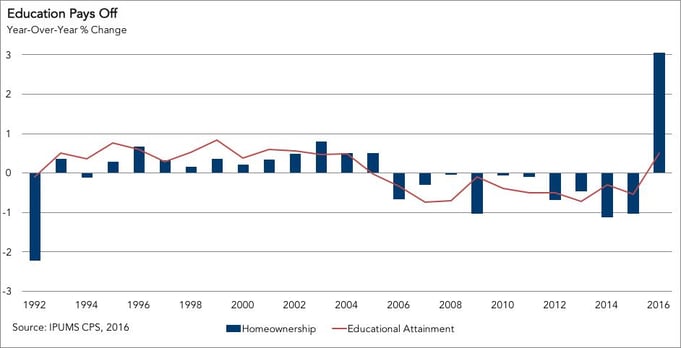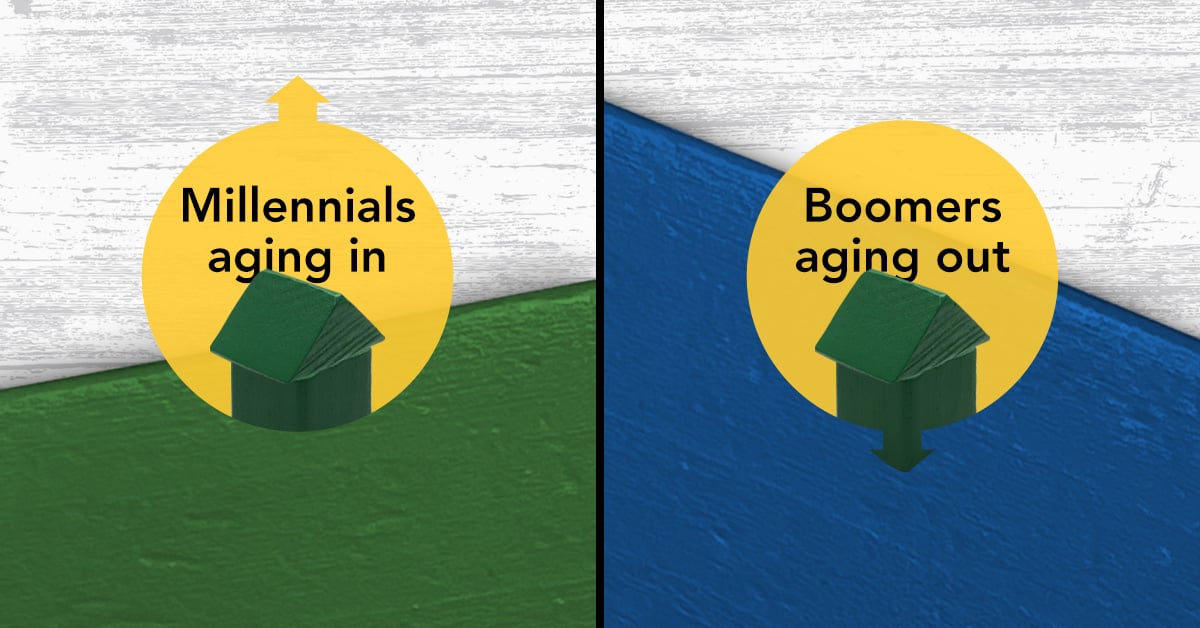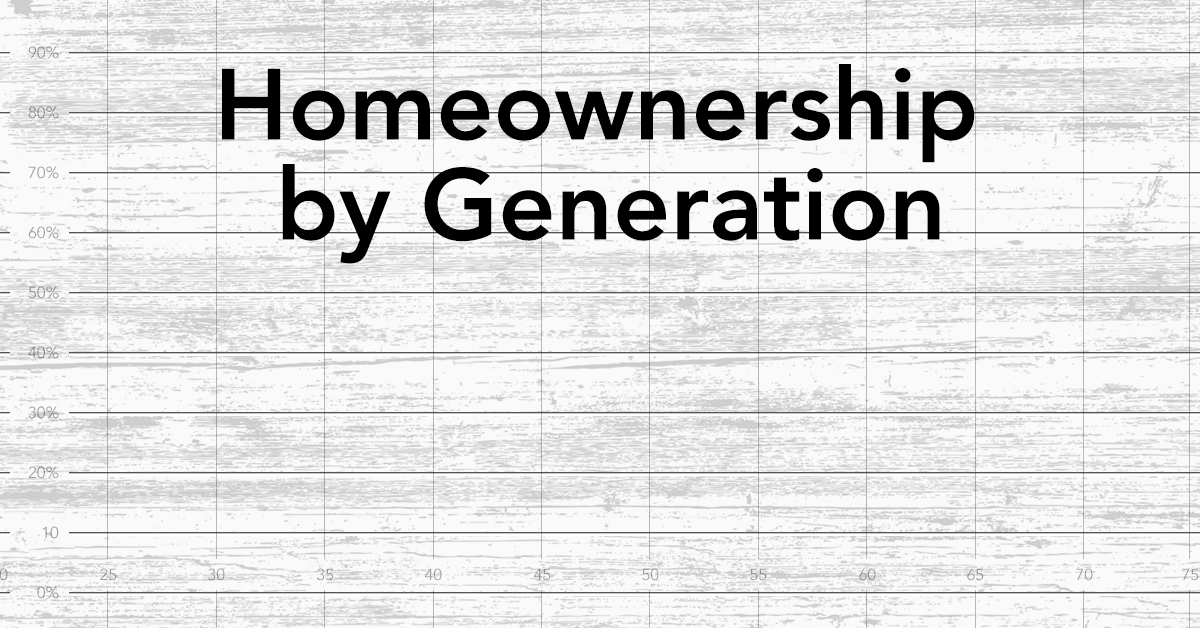Spring break is fast approaching, that playful time of year when beach cities are inundated with college students and tourists. As housing economists, spring break is exciting because it coincides with the beginning of the spring home buying season! While we may not seem to have much in common with the college crowd, there is an underlying connection: education.
Today’s “spring breakers” represent part of the most educated generation in the United States – the Millennials. They are the generation that has widely delayed family formation in lieu of the pursuit of higher degrees. And, despite the popular narrative surrounding Millennials as “overeducated and underemployed,” a college degree still means that a Millennial with a college degree earns approximately $17,500 a year more than a Millennial with only a high school diploma.
“Based on our model and analysis, the pending wave of rising educational attainment, combined with the positive influence of income growth and increased family formation, will spur an increase in homeownership demand.”
In our last post, we isolated and analyzed the importance and impact of improving economic conditions and rising income to homeownership. Now, as we enter a promising spring home buying season, older Millennials are beginning to enter the family formation period of their lives and their rising incomes support home buying. The underlying catalyst for this rise in incomes is rising educational attainment. As our Homeownership Progress Index (HPRI) shows, states and markets with growing educational attainment rates often experience significant improvements in homeownership.
The importance of education to homeownership has only increased over time. Our HPRI shows the importance of education in relation to homeownership has almost doubled in less than 10 years. In 1997, the difference in homeownership between those with a high school degree and those with a college degree was 10 percent. In 2016, the difference increased to 21 percent. So, could Millennials be onto something here?
Education Pays Off
As we have highlighted in the past, one of the most important factors improving the long-run outlook for homeownership is increasing educational attainment. Our model shows that, all other factors being equal, the likelihood of homeownership increases by 3 percent for those that earn a bachelor’s degree over just a high school degree. The likelihood of homeownership jumps another 3 percent for those that continue onto graduate school.
The good news for housing is educational attainment is increasing. Since 1991, the share of households in which at least one person has a bachelor’s degree has increased 24 percent, and is expected to increase further as Millennials continue to graduate from college and enter the workforce with improved prospects for higher-paying jobs.
Using the same model we used to analyze the impact of income and economic changes on homeownership, Figure 1 below shows the change in homeownership rates caused, all else held constant, by the change in the rate of bachelor’s degree attainment. Between 1992 and 2005, the increasing share of individuals earning bachelor’s degrees led to a 2.7 percent increase in homeownership. Between 2005 and 2015, partially in response to the Great Recession and slow economic recovery, Millennials have been staying in school. Consequently, the educational attainment rate, which measures the completion of degrees, declined. All else held constant, this caused modest year-over-year declines in the homeownership rate. In 2016 (the most recent year with available data), a jump in the educational attainment rate drove a 3 percent year-over-year gain in homeownership.
Figure 1.

Confluence of Trends to Drive Homeownership Demand
According to the PEW Research Center, 63 percent of Millennials value a college education or plan to get one. Of that number, 19 percent have already graduated from college and the remaining 44 percent plan to graduate from college. Approximately 27 percent of Millennial women and 21 percent of Millennial men have college degrees. This is in stark contrast to only 20 percent of Generation X women and 18 percent of Generation X men. The comparison to Baby Boomers is even more dramatic – only 14 percent of women and 17 percent of men have degrees. Based on our model and analysis, the pending wave of rising educational attainment, combined with the positive influence of income growth and increased family formation, will spur an increase in homeownership demand. So, enjoy that spring break Millennials, but hurry back to class – it’s more important than ever before to achieve the American Dream.



